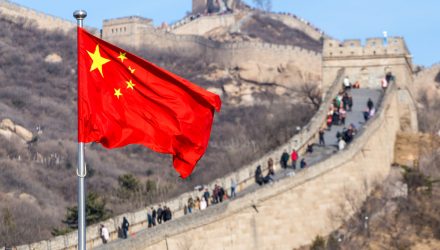Financial markets have a history of rewarding contrarian bets. But it’s often difficult for investors to place those wagers. After all, there’s comfort in owning widely held securities and following other market participants. Still, there’s no denying that going against the crowd has the potential to reward investors with the temerity to do so. Hearty investors looking for contrarian ideas need not stretch into exotic fare. That’s because China stocks stand as clear 2024 contrarian ideas.
That could prove beneficial to exchange traded funds such as the KraneShares Bosera MSCI China A Share ETF (KBA). Amid concerns about China’s property market and geopolitical tensions between the U.S. and China, KBA and its peers stumbled last year. But China stocks, including KBA components, are now trading at rock-bottom valuations. So some experts believe China equities may be offering investors a favorable risk/reward proposition.
Indicator Could Bode Well for China ETF KBA in 2024
Regarding China stocks, there are some tea leaves that need to be read, and they could bode well for KBA’s rebound story in 2024. The risk premium on China stocks is now so depressed, it could be a harbinger of significant upside to come. Plus, China stocks are inexpensive relative to the country’s bonds.
“Compared with bonds, Chinese stocks have rarely been so cheap,” reported Bloomberg. “At about 8%, the earnings yields of the CSI benchmark is 5.7 percentage points above the 10-year yield. Since 2005, the gap has rarely been this big. Similarly, the dividend yield of the stock benchmark has risen above the long-term bond yields for the first time since at least 2005.”
Said another way, there’s a gap between the earnings generated by CSI member firms and China’s 10-year bonds. Historically, when the gap has exceeded 5%, as it does today, that’s often been a starting point for equity market upside. For KBA investors, that history could prove attractive.
“There’s been five previous periods in almost two decades that the stock-bond yield gap has reached 5.5 points or more, including during the 2008 financial crisis and the pandemic in 2020. Stocks rose in the following 12 months each time, with a whopping return of 57% on average,” according to Bloomberg.
As its name implies, KBA provides exposure to China’s A-shares market — the stocks trading on mainland China. Some market observers believe those stocks will outperform Hong Kong-listed equities this year.
For more news, information, and analysis, visit the Climate Insights Channel.

